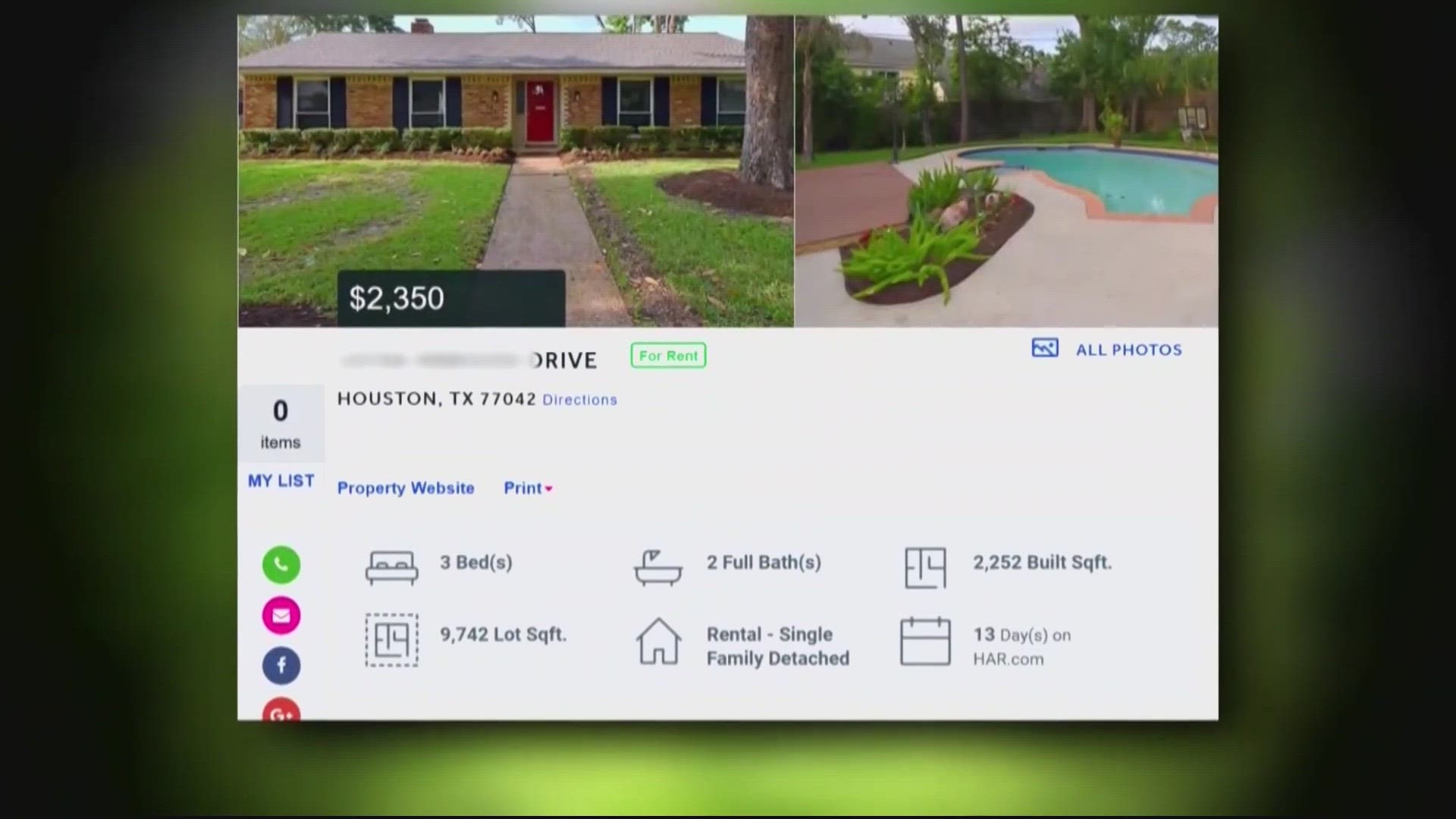WASHINGTON — Those looking to rent in D.C. face a new threat. In addition to high prices, officials say a new scam is targeting people trying to find a place to live in the District.
According to a release from the office of Attorney General Brian L. Schwalb, the D.C. government has issued a consumer alert warning of fake listings and other rental fee scams.
Scammers are reportedly pretending to be landlords or property management companies who post fake ads for houses or apartments that they do not own or are not actually renting out. These scammers use these listings to trick potential renters into sending them money, saying it is for application fees or security deposits, which are usually sent using non-refundable methods.
Once the scammer has the cash, they disappear and the renter is left with nothing.
Officials warn renters that these scams are often convincing and can be tricky to stop.
"Scammers often use the names of well-known property management companies and use photos taken from legitimate real estate ads or listings," the release from Schwalb reads. "To avoid these scams, it’s important to learn the warning signs, share the information with others, and know what to do if you think you or someone else is being scammed."
Red flags to look out for:
Officials released a list of warning signs to keep an eye out for when searching for an apartment to make sure you don't get scammed.
Before sending any money, officials suggest the following steps:
- Don’t send money without seeing the property first: If possible, avoid sending an application fee or a security deposit before seeing the rental property in person. If you cannot see the property in person, there are other ways to avoid being scammed:
- See if a friend, family member, or co-worker can visit the property in person for you.
- Ask the landlord to do a virtual tour of the property on a video call, FaceTime, or Skype.
- Search online to confirm the identity of the landlord. You also should verify that the property is actually for rent. Look for postings on websites like Redfin, Zillow, and Realtor.com. If you see inconsistencies between those sites or if a property is only available on Craigslist.
- Call the property management company and ask to speak to a supervisor. Confirm with the supervisor that the property is for rent.
- Google the property and look for any reports of dishonest or fake rentals.
- Do an internet search for both the landlord and the property to confirm both are real.
- The DC Office of Licensing and Consumer Protection’s (DLCP) SCOUT database has helpful information. You can search for a business by name, and SCOUT will indicate if the business is licensed. If the business is not licensed, do not do business with them!
- Don’t send money through payment methods that cannot be stopped or refunded.
- Be very careful about sending any money through methods that cannot be stopped, tracked, or refunded. Once the money is sent using a mobile payment app (Zelle, Venmo, Cash App, etc.), wire transfer, or cashier’s check, that money is gone. It cannot be recovered.
- It is safer to pay an application fee or security deposit with a personal check or a credit card.
- Don’t rush to pay rental fees until you are sure it’s not a scam: Do not feel pressure to send rental fees, like an application fee or a security deposit, before you are sure that the property is actually for rent.
- Make sure that you are sending the money to the actual property manager or owner. Use the DLCP SCOUT database to double-check who owns or manages the property.
- Take time to talk to someone you trust about the rental offer. If you are a student, someone in your school’s Office of Student Affairs/Services Review may be able to help.
- Don’t pay a security deposit until a lease is signed: DC law has strict requirements for security deposits. Security deposit amounts, terms, and conditions must be clearly stated in a lease or other agreement. Security deposits cannot cost more than one month of rent. Security deposits also can only be charged once.
- Do not pay a security deposit until a lease agreement is signed by both you and the landlord. Make sure the security deposit amount is written in the lease.
- Look out for lease agreements that contain blank spaces or unclear terms. If the landlord tells you that they will complete the lease after you send the security deposit.
- Do not pay a security deposit that is more than the cost of one month’s rent. Under DC law, landlords may only charge security deposits less than or equal to one month’s rent.
- Never pay a security deposit more than once for a single property.
- Ask for a security deposit receipt. This type of receipt must state the amount of the security deposit and any related payment terms and conditions.
After days of speculation about the identity of the squatter living in the basement of a viral Zillow listing, the woman has come forward to tell her side of the unusual story. "That's not true what they're talking about me," Nelly told WUSA9. "I'm not a bad person."

